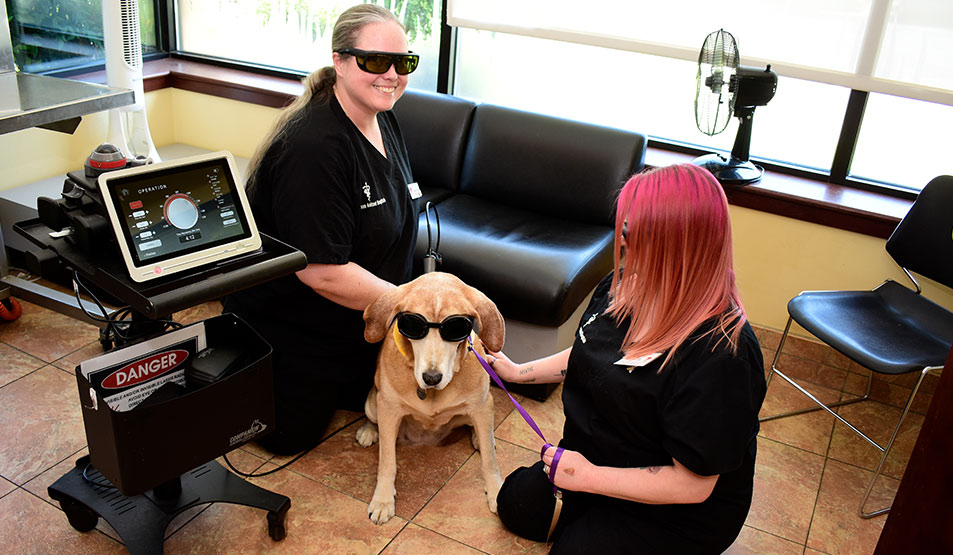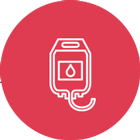
Senior Care
Senior Pet Care
Improved nutrition, advances in veterinary medicine and care of pets have resulted in dogs and cats enjoying longer lives. However, with longer lives, pets develop many of the same ailments often associated with old age in humans, including kidney disease, cancer, arthritis, diabetes, cataracts and urinary tract infections.
Visible symptoms associated with these diseases can appear early, making therapeutic intervention possible. Semi-annual exams and blood profiles for every senior pet can be very helpful to aid in diagnosing any age-related illness early. However, an early symptom is often pain, which your pet does not communicate to you. In the wild, signs of visible pain is a sign of weakness and being easy prey to predators. The best chance of early detection is regular wellness checkups.
We recommend SEMI-ANNUAL EXAMS and BLOOD PROFILES to make sure your pet can live a longer, healthier, happier life.
A year between physical examinations for your dog is like 7 years between examinations for us. Senior pets (7 years and older) especially should be seen twice-a-year to detect common age-related problems early in development. We are certain that you will find twice-yearly veterinary wellness exams for your pet to be a good investment in terms of money saved over the long run and, more importantly, in the longer and healthier life your pet can enjoy with you.
Blood Tests
We recommend semi-annual blood tests and urinalysis for ALL senior pets. Preventative medicine means finding disease BEFORE it becomes a serious problem for your pet. Considering that one human year is equal to approximately 7 years for a pet, semiannual blood wellness profiles are always recommended. Blood panels show us important blood chemistry information which can indicate the presence of diseases or the possibility of disease, allowing us to treat conditions before they become more serious for your pet.
Vaccinations
Keeping your senior pet current on his or her vaccinations is important for the long term health of your pet and your family. We follow a three-year vaccination protocol starting at 4 years of age, since we do not believe in over-vaccinating your pet. We will complete a lifestyle disease risk assessment form prior to administering any vaccinations to ensure that we are creating a specific vaccine plan customized to the needs of you and your senior pet. We prefer not to give more than one vaccine at a visit if possible, especially for senior dogs and cats.
Dental Care
Dental care is especially important for senior pets, and your veterinarians will examine your pet’s teeth during a wellness exam. Dental care is one of the most effective ways to prolong your pet’s life and prevent the chronic discomfort that accompanies dental disease. For humans, caring for our teeth and gums is part of our daily routine. Without care serious problems with our teeth and gums would develop. Your senior pet needs dental care to prevent problems too. Those senior pets that receive routine dental care have fewer heart, lung, kidney, and liver problems as they mature, as well as nicer breath! If your senior pet needs dental care, we will discuss the various options with you during your senior pet’s exam.





